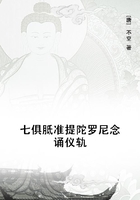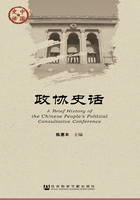The operation was deferred till the following day.But when they had left, there arose in the house such a wailing, in sympathy with the excessive despondency of the master, that it seemed to us like the mourning at a funeral, and we could scarcely repress it.Holy men were in the habit of visiting him daily; Saturninus of blessed memory, at that time bishop of Uzali, and the presbyter Gelosus, and the deacons of the church of Carthage; and among these was the bishop Aurelius, who alone of them all survives,--a man to be named by us with due reverence,--and with him I have often spoken of this affair, as we conversed together about the wonderful works of God, and I have found that he distinctly remembers what I am now relating.When these persons visited him that evening according to their custom, he besought them, with pitiable tears, that they would do him the honor of being present next day at what he judged his funeral rather than his suffering.For such was the terror his former pains had produced, that he made no doubt he would die in the hands of the surgeons.They comforted him, and exhorted him to put his trust in God, and nerve his will like a man.Then we went to prayer; but while we, in the usual way, were kneeling and bending to the ground, he cast himself down, as if some one were hurling him violently to the earth, and began to pray; but in what a manner, with what earnestness and emotion, with what a flood of tears, with what groans and sobs, that shook his whole body, and almost prevented him speaking, who can describe! Whether the others prayed, and had not their attention wholly diverted by this conduct, I do not know.For myself, Icould not pray at all.This only I briefly said in my heart: "O Lord, what prayers of Thy people dost Thou hear if Thou hearest not these?" For it seemed to me that nothing could be added to this prayer, unless he expired in praying.We rose from our knees, and, receiving the blessing of the bishop, departed, the patient beseeching his visitors to be present next morning, they exhorting him to keep up his heart.The dreaded day dawned.The servants of God were present, as they had promised to be;the surgeons arrived; all that the circumstances required was ready;the frightful instruments are produced; all look on in wonder and suspense.While those who have most influence with the patient are cheering his fainting spirit, his limbs are arranged on the couch so as to suit the hand of the operator; the knots of the bandages are untied; the part is bared; the surgeon examines it, and, with knife in hand, eagerly looks for the sinus that is to be cut.He searches for it with his eyes; he feels for it with his finger; he applies every kind of scrutiny: he finds a perfectly firm cicatrix! No words of mine can describe the joy, and praise, and thanksgiving to the merciful and almighty God which was poured from the lips of all, with tears of gladness.
Let the scene be imagined rather than described!
In the same city of Carthage lived Innocentia, a very devout woman of the highest rank in the state.She had cancer in one of her breasts, a disease which, as physicians say, is incurable.Ordinarily, therefore, they either amputate, and so separate from the body the member on which the disease has seized, or, that the patient's life may be prolonged a little, though death is inevitable even if somewhat delayed, they abandon all remedies, following, as they say, the advice of Hippocrates.This the lady we speak of had been advised to by a skillful physician, who was intimate with her family; and she betook herself to God alone by prayer.On the approach of Easter, she was instructed in a dream to wait for the first woman that came out from the baptistery(1) after being baptized, and to ask her to make the sign of Christ upon her sore.She did so, and was immediately cured.The physician who had advised her to apply no remedy if she wished to live a little longer, when he had examined her after this, and found that she who, on his former examination, was afflicted with that disease was now perfectly cured, eagerly asked her what remedy she had used, anxious, as we may well believe, to discover the drug which should defeat the decision of Hippocrates.But when she told him what had happened, he is said to have replied, with religious politeness, though with a contemptuous tone, and an expression which made her fear he would utter some blasphemy against Christ, "I thought you would make some great discovery to me." She, shuddering at his indifference, quickly replied, "What great thing was it for Christ to heal a cancer, who raised one who had been four days dead?"When, therefore, I had heard this, I was extremely indignant that so great a miracle wrought in that well-known city, and on a person who was certainly not obscure, should not be divulged, and I considered that she should be spoken to, if not reprimanded on this score.And when she replied to me that she had not kept silence on the subject, I asked the women with whom she was best acquainted whether they had ever heard of this before.They told me they knew nothing of it."See," I said, "what your not keeping silence amounts to, since not even those who are so familiar with you know of it." And as I had only briefly heard the story, I made her tell how the whole thing happened, from beginning to end, while the other women listened in great astonishment, and glorified God.















